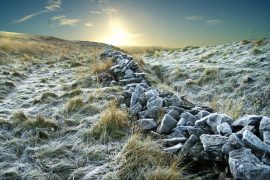This is where we start our journey together. Thank you for joining in. We want to encourage you to set aside time each day through Lent to read and reflect with us. Through this first week you will see the pattern of devotionals that develop, scripture, art, reflections, and more. And you’ll be able to comment, either on ecotheo.org, Facebook, or Twitter. Share your questions, reactions, and prayers through this season.
Our prayer is that as you engage this devotional through Lent, you might grow more deeply in love with creator and creation.
So here we go…
EnviroLent Day 1
Psalm 104:1-4
Bless the Lord, O my soul.
O Lord my God, you are very great.
You are clothed with honor and majesty,
wrapped in light as with a garment.
You stretch out the heavens like a tent,
you set the beams of your chambers on the waters,
you make the clouds your chariot,
you ride on the wings of the wind,
you make the winds your messengers,
fire and flame your ministers.
We begin at the beginning: Psalm 104.
“Wait!” you say, “This isn’t the beginning! Genesis is the beginning of the bible.” And right you are. Gold star.
But it is exactly the text of Genesis 1:1-31 that this psalm will draw on. Look again. Can you spot some of the connections? God radiating light. Stretching out the heavens and subduing the waters. The psalmist is offering a praise back to God as Creator–echoing in praise the very act of creation. The Word that speaks creation into being is now the words of praiseful song.
And the next question you wonder: what are we doing singing praises on Ash Wednesday? We will get back to that.
First, the ashes in Ash Wednesday: they are a traditional marker of grief. So what is it we grieve today? The answer may be twofold. First, the distance we experience from God (we often talk of this in terms of sin). Secondly, our mortality.
Ashes to ashes, dust to dust.
Ours is a short-term lease, a tiny speck in the cosmic order. As the writer of Ecclesiastes puts it, it is all just a chasing after the wind (Ecclesiastes 1:14). A vapor; here, and then gone
But we are not primed to think of ourselves in these terms, as finite and limited. No, we must confess that we often imagine we are the creators, not God. We are the innovators, not God. We are the fixers, the do-ers, the make it happen-ers, not God. We are full of limitless potential. As the modern day prophet Wendell Berry sarcastically opens one of his Mad Farmer Poems,
Love the quick profit, the annual raise,
vacation with pay. Want more
of everything ready-made. Be afraid
to know your neighbors and to die.
We are vapor, dust, ashes. And that is a sobering reality to face, one which can certainly bring us to a place of fear.
So why in the world, then, would we sing this opening praise from Psalm 104? Here is one idea: perhaps because it reminds us of our first role in creation is that of created not creator. It frees us from trying to be something we are not. What we are is finite. What we are is reliant on God. This is a narrative honest with our mortality, honest with the creation we ourselves are a part of.
To turn to God in praise is to recognize the source of life, of goodness, of the wonder and splendor of creation. You can not sing a praise to the Creator with honesty and integrity if you hold onto the hope that you may actually be in charge of this whole adventure.
So today we face our mortality with honesty. And even as we may mourn, we may also praise.
God, may our souls cry out in blessing for the wonders of your creation through this season of lent.
Questions & Activities
- What comes to mind when you think of your mortality? Is your first response praise? Fear? Anger? What?
- What praise might you offer God today, for your life or for creation? Don’t be shy–sing it out.
- What are some ways you act like creator in your own life? Consider writing them down as a confession to God, then make your own ashes from this confession.
- Each week we will dive deeper into Psalm 104. Take the time to read all of Psalm 104 or Genesis 1 (or both!). Perhaps this can become a weekly habit as we dive deeper into these texts.





